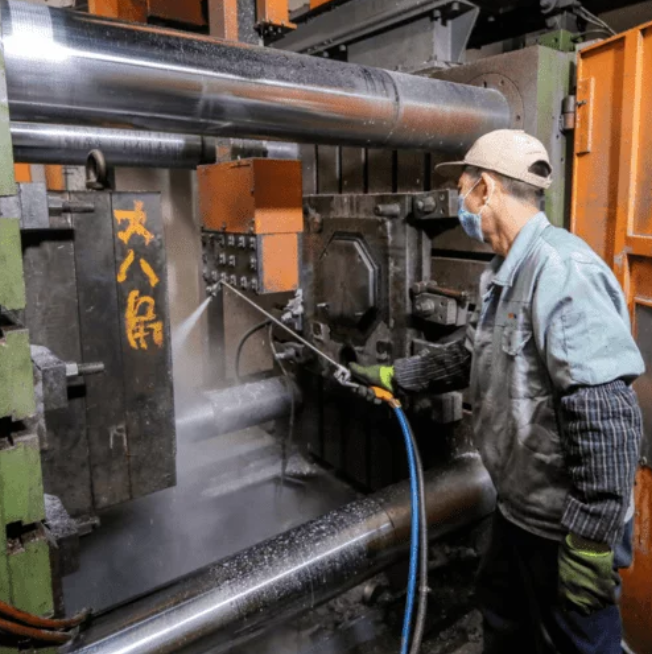Introduction:
In the realm of precision engineering, CNC machining has emerged as a powerful technique for creating complex and accurate parts. Among the materials commonly used in this process, aluminum stands out for its exceptional properties, making it a popular choice in various industries. CNC machined aluminum parts offer unparalleled performance, durability, and aesthetic appeal, making them the go-to option for manufacturers and designers looking for top-notch quality. This article explores the incredible world of CNC machined aluminum parts and sheds light on their applications, advantages, and the future of this innovative technology.
The Advantages of CNC Machined Aluminum Parts:
1. Exceptional Precision: CNC machining enables the creation of intricate and precise designs with tight tolerances. Aluminum, with its excellent machinability, allows for high-precision manufacturing, ensuring consistent and accurate results every time.
2. Durability and Strength: Aluminum is renowned for its strength-to-weight ratio, making it an ideal choice for applications that require lightweight yet robust components. CNC machined aluminum parts offer exceptional structural integrity, with the ability to withstand demanding conditions.
3. Versatility: Aluminum can be easily machined into various shapes, sizes, and finishes, allowing for endless possibilities in design and functionality. CNC machining provides the flexibility to create complex geometries, intricate patterns, and intricate details that other manufacturing processes may struggle to achieve.
4. Corrosion Resistance: Aluminum naturally forms a protective oxide layer, which makes it highly resistant to corrosion. CNC machined aluminum parts are often used in outdoor and marine applications, where exposure to moisture and harsh environmental conditions is common.
Applications of CNC Machined Aluminum Parts:
1. Automotive Industry: From engine components to interior and exterior parts, CNC machined aluminum is widely used in the automotive industry. It offers lightweight alternatives to steel, improving fuel efficiency without compromising on safety or performance.
2. Aerospace Sector: The aerospace industry heavily relies on CNC machined aluminum parts for their lightweight, high-strength properties. Aluminum parts find applications in aircraft frames, wings, landing gear, and other critical components, contributing to fuel efficiency and overall performance.
3. Electronics and Communication: CNC machined aluminum parts are integral to the production of electronic devices, such as smartphones, laptops, and tablets. Aluminum\’s excellent thermal conductivity ensures efficient heat dissipation, preventing overheating and prolonging the lifespan of delicate electronic components.
4. Medical Equipment: In the medical field, CNC machined aluminum parts are used in the production of surgical instruments, implants, and diagnostic equipment. Aluminum\’s biocompatibility, lightweight nature, and corrosion resistance make it an excellent choice for medical applications.

Future Developments and Innovations:
As technology continues to advance, the future of CNC machined aluminum parts looks promising. Here are some exciting developments on the horizon:
1. Integration of Artificial Intelligence: AI-powered CNC machines can optimize machining processes, improving efficiency, reducing errors, and increasing productivity. This integration allows for real-time monitoring, analysis, and adjustment, resulting in enhanced precision and cost-effectiveness.
2. Additive Manufacturing: The combination of CNC machining and additive manufacturing techniques, such as 3D printing, is revolutionizing the production of aluminum parts. This hybrid approach allows for the creation of complex geometries with reduced material waste and shorter lead times.
3. Advanced Surface Finishing: Innovations in surface finishing techniques, such as anodizing, powder coating, and electroplating, are further enhancing the aesthetics and functionality of CNC machined aluminum parts. These advancements open up new possibilities for customization and improved corrosion resistance.
Conclusion:
CNC machined aluminum parts represent the epitome of precision engineering. Their exceptional precision, durability, versatility, and corrosion resistance make them indispensable in various industries. The future of CNC machining holds exciting prospects, with advancements in AI integration, additive manufacturing, and surface finishing techniques. As technology continues to evolve, CNC machined aluminum parts will undoubtedly play a vital role in shaping our world and pushing the boundaries of innovation.
-

- Magnesium alloy die-casting auto parts center control cover
-

- Thixomolding magnesium parts & components mobile phone middle board
-

- Bahagian logam thixomolding aloi mangansium die-casting
-

- roda die-casting aloi magnesium untuk ebike
-

- Bahagian&komponen die-casting aloi magnesium untuk e-basikal
-

- high precision die-casting steering wheel for automotive

 0086-750-5616188
0086-750-5616188 +86 13392089688
+86 13392089688 sales@zhongmei-tech.com
sales@zhongmei-tech.com







